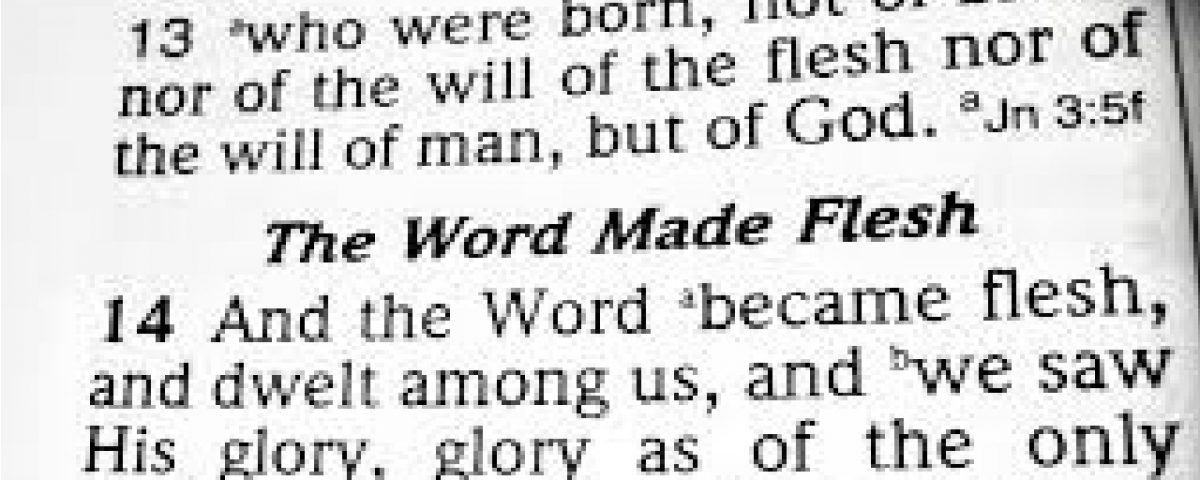
“Yet God is only one Person.”
October 30, 2019
The Loss of the Messianic Jesus in the Early Struggles over Christology
December 13, 2019The Virgin Birth in John 1:13

Many of the early and late so-called Church Fathers applied John 1:13 to the virgin birth of Jesus and not the spiritual rebirth of the Christian.
Irenaeus, Against Heresies (Book 3):
16.2 But the Holy Ghost, foreseeing the corrupters [of the truth], and guarding by anticipation against their deceit, says by Matthew, “But the birth of Christ was on this wise;” and that He is Emmanuel, lest perchance we might consider Him as a mere man: for “not by the will of the flesh nor by the will of man, but by the will of God was the Word made flesh.
19.2 For this reason [it is, said], Who shall declare His generation? Isaiah 53:8 since He is a man, and who shall recognise Him? Jeremiah 17:9 But he to whom the Father which is in heaven has revealed Him, Matthew 16:16 knows Him, so that he understands that He who was not born either by the will of the flesh, or by the will of man, John 1:13 is the Son of man, this is Christ, the Son of the living God.
Justin Martyr, Dialogue with Trypho 54, 63:
That the Scripture mentions the blood of the grape has been evidently designed, because Christ derives blood not from the seed of man, but from the power of God. For as God, and not man, has produced the blood of the vine, so also [the Scripture] has predicted that the blood of Christ would be not of the seed of man, but of the power of God. But this prophecy, sirs, which I repeated, proves that Christ is not man of men, begotten in the ordinary course of humanity.
The passage, then, which Isaiah records, Who shall declare His generation? For His life is taken away from the earth, Isaiah 53:8—does it not appear to you to refer to One who, not having descent from men, was said to be delivered over to death by God for the transgressions of the people?—of whose blood, Moses (as I mentioned before), when speaking in parable, said, that He would wash His garments in the blood of the grape; since His blood did not spring from the seed of man, but from the will of God.
Epistula Apostolorum 3:
“In God, the Lord, the Son of God, do we believe, that he is the word become flesh: that of Mary the holy virgin he took a body, begotten of the Holy Ghost, not of the will (lust) of the flesh, but by the will of God: that he was wrapped in swaddling clothes in Bethlehem and made manifest, and grew up and came to ripe age, when also we beheld it.”
Augustine, Confessions Book 7:
You procured for me, by the instrumentality of one inflated with most monstrous pride, certain books of the Platonists, translated from Greek into Latin….In like manner, I read there that God the Word was born not of flesh, nor of blood, nor of the will of man, nor of the will of the flesh, but of God.
Tertullian, in his On the Flesh of Christ (19, 24) goes into detail to explain that early on in the transmission of this text some “Gnostic” Christians sought to change it!
What, then, is the meaning of this passage, Born not of blood, nor of the will of the flesh, nor of the will of man, but of God? John 1:13 I shall make more use of this passage after I have confuted those who have tampered with it.
They maintain that it was written thus (in the plural) Who were born, not of blood, nor of the will of the flesh, nor of the will of man, but of God, as if designating those who were before mentioned as believing in His name, in order to point out the existence of that mysterious seed of the elect and spiritual which they appropriate to themselves. But how can this be, when all who believe in the name of the Lord are, by reason of the common principle of the human race, born of blood, and of the will of the flesh, and of man, as indeed is Valentinus himself?
The expression is in the singular number, as referring to the Lord, He was born of God.
And when in another passage he says, in like manner, Before me there was no God, Isaiah 46:9 he strikes at those inexplicable genealogies of the Valentinian Æons. Again, there is an answer to Ebion in the Scripture: Born, not of blood, nor of the will of the flesh, nor of the will of man, but of God.

